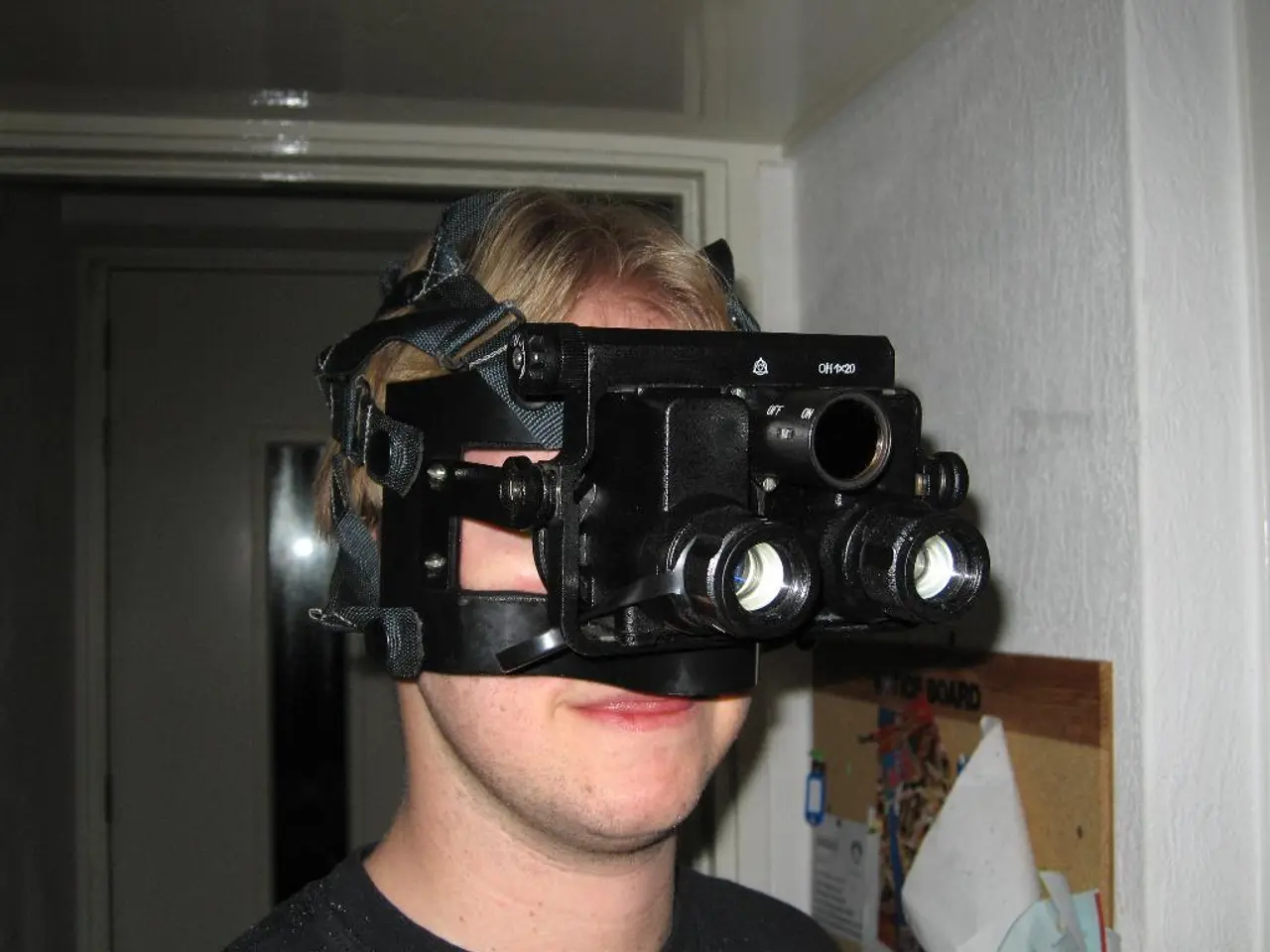Exploring Ten Applications of Virtual Reality in Addressing Mental Health Issues
Virtual Reality (VR) is revolutionizing the landscape of mental healthcare, offering a new era where emotional healing is no longer confined to the therapist's office. Early adopters of VR mental health solutions often experience significant competitive advantages, signaling innovation, leadership, and a commitment to cutting-edge care for healthcare organizations and tech providers.
VR-based treatments, such as virtual reality exposure therapy (VRET) and self-administered VR programs, are increasingly gaining reimbursement support, driving wider adoption and sustainable business growth. These innovative therapies have demonstrated faster symptom relief for conditions like phobias, social anxiety, PTSD, stress, and depression.
Enhanced Accessibility and Improved Outcomes
VR therapies can be delivered remotely and at scale, reducing barriers such as geographical limitations, long wait times, and stigma associated with traditional in-person care. Self-directed VR programs allow patients to initiate treatment on their own schedule without immediate clinician involvement. This increased accessibility contributes to improved treatment outcomes, with evidence showing VR-based exposure therapy to be superior to waitlist controls and accelerating recovery in anxiety and stress-related conditions.
Clinically validated digital therapeutics delivered via VR integrate evidence-based cognitive behavioral therapy (CBT) principles, contributing to measurable health improvements and reducing reliance on medication. VR creates immersive spaces that foster a sense of belonging and reduce isolation by enabling patients to discuss mental health challenges and coping strategies in supportive virtual communities or therapeutic environments.
Challenges and Considerations
Despite promising results, there is a need for standardization of VR therapy software and delivery protocols to ensure consistent quality and wider adoption in clinical practice. Insurance coverage is still emerging, and regulatory oversight is catching up with rapid technological advances, particularly with the integration of AI-driven virtual therapists.
To gain acceptance among clinicians and payers, VR mental health solutions must demonstrate safety and efficacy through rigorous clinical trials and secure regulatory approvals. Adherence to data privacy and security regulations like HIPAA and GDPR is essential for trusted virtual reality healthcare applications.
The Future of VR Mental Health
As immersive digital therapies become more mainstream, forward-thinking healthcare providers can build stronger patient loyalty, attract new referrals, and stand out in a crowded market. Emerging technologies like haptic feedback systems, brain-computer interfaces, and 5G networks will amplify VR's impact on mental health care in the future.
VR mental health apps must seamlessly integrate with Electronic Medical Records (EMR), Electronic Health Records (EHR), telehealth platforms, and provider workflows to enable coordinated care. When integrated with AI and IoT technologies, VR mental health solutions can easily scale to serve large populations without compromising quality or personalization.
At the forefront of this evolution is Appinventiv, a globally leading custom healthcare software development company, empowering healthcare pioneers to turn breakthrough ideas into real-world impact. By leveraging expertise spanning the entire digital health spectrum, rooted in clinical understanding, driven by user-centric design, and reinforced by regulatory compliance, Appinventiv is helping shape the future of mental health care.
The most prominent use cases include exposure therapy for PTSD and phobias, VR-assisted cognitive behavioral therapy, immersive relaxation for anxiety and stress, addiction recovery support and craving reduction, social skills training for autism spectrum disorders, pain distraction and management, depression treatment through virtual environments, sleep disorder management using VR relaxation, rehabilitation for traumatic brain injury, and sleep disorder management using VR relaxation.
Virtual reality therapy has demonstrated strong effectiveness for conditions such as PTSD, phobias, anxiety disorders, depression, addiction, and autism spectrum disorders. Leading healthcare organizations and pharmaceutical companies are partnering with VR development services providers to integrate immersive therapies into clinical practice, expand teletherapy options, and enhance patient engagement.
Implementing virtual reality in mental health apps involves several cost components, with development costs for a custom VR mental health app generally falling between $100,000 and $500,000. To ensure VR experiences are therapeutic and inclusive, mental health professionals, UX designers specialized in accessibility, and patient representatives should be engaged early in the design process.
References:
[1] "Virtual Reality in Mental Health: A Review of Current Evidence and Future Directions." Frontiers in Psychiatry, 2019.
[2] "Virtual Reality for Mental Health: A Systematic Review." JMIR Mental Health, 2018.
[3] "Regulatory Challenges for Artificial Intelligence in Healthcare." Nature Medicine, 2020.
[4] "Virtual Reality and Social Anxiety: A Systematic Review." Cyberpsychology, Behavior, and Social Networking, 2019.
[5] "Virtual Reality Exposure Therapy for Posttraumatic Stress Disorder: A Meta-Analysis." Journal of Anxiety Disorders, 2018.
- The potential of virtual reality (VR) in health-and-wellness, particularly mental health, is evident as it integrates evidence-based cognitive behavioral therapy (CBT) principles to deliver clinically validated digital therapeutics, contributing to measurable improvements in mental health.
- As VR-based treatments continue to show promising results in various mental health conditions, like PTSD, phobias, anxiety, depression, and autism spectrum disorders, science plays a crucial role in standardizing VR therapy software and delivery protocols to ensure wider adoption and efficacy in the field of mental health.




